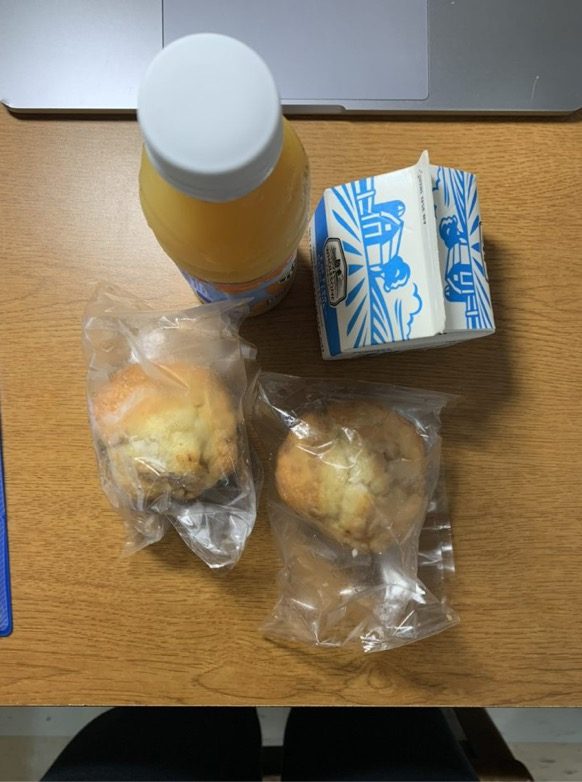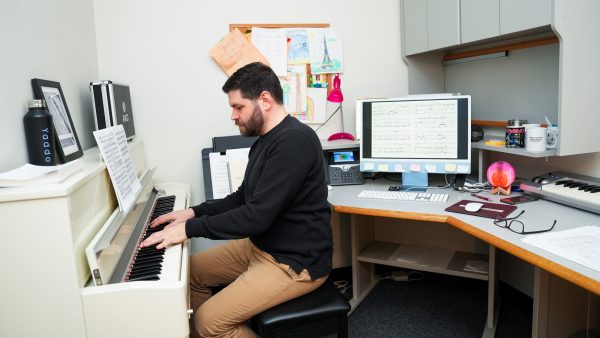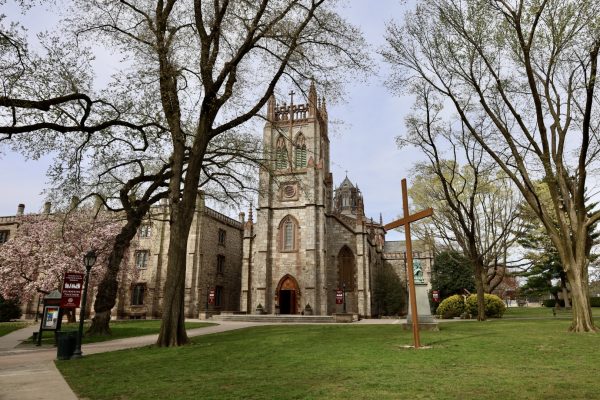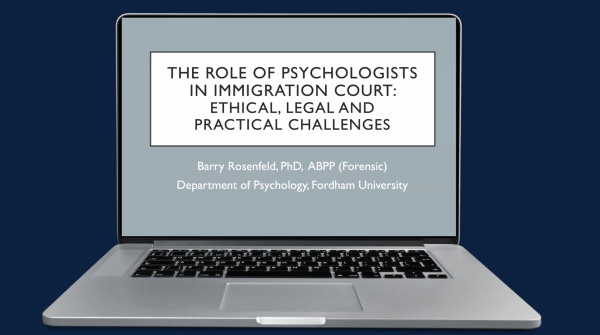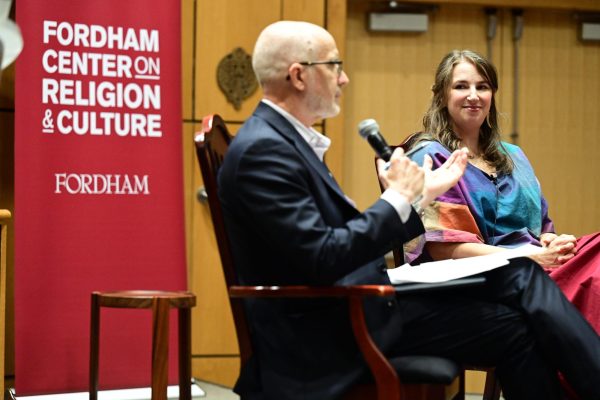Fordham Students Describe Experiences of On-Campus Quarantine
As in-person classes and activities remain on pause at Fordham University’s Rose Hill campus, some students have been directed to quarantine on campus after they tested positive or were exposed to COVID-19.
Anna Gaylord, FCRH ’23, recently had to quarantine with her roommate in O’Hare Hall after they both tested positive for coronavirus. She said she first noticed symptoms, most noticeably a persistent cough and fatigue, on Feb. 6. Because Fordham’s on-campus testing site was going to be closed the next day due to bad weather, Gaylord and her roommate got tested off-campus. They isolated voluntarily until they received their positive test results and then contacted the university. Gaylord said she was not certain when or where she might have been exposed to the virus.
Fordham’s Office of Residential Life directed Gaylord and her roommate to quarantine in their dorm room for ten days, from Feb. 7 to Feb. 17. This came as a relief to Gaylord, who did not want to isolate in another residential hall. “It would be a lot more stress on both of us,” she explained.
Fordham requires students to quarantine if they test positive for COVID-19 or are directly exposed to another person who is positive. The university states that students must quarantine for ten days beginning on the day that a positive COVID-19 test was taken, according to its COVID-19 guidelines. If a student needs to quarantine because they were directly exposed to someone else who tested positive, their 10-day isolation period begins on the day that the COVID-19-positive individual tested positive.
Not all Fordham students are able to quarantine in residential housing. Commuter students and residents who are able to return home are directed to complete their quarantine period in their off-campus residences, according to the university quarantine provisions. Residents who are unable to travel home are able to quarantine in campus housing. The university also states that it has made provision to supply “ongoing support services, medical oversight through health services and food delivery to isolated students.”
Christopher Rodgers, the assistant vice president of the university and dean of students, said the administration was confident in its quarantine procedures in a statement to The Ram.
“Our residential life staff have been assisting students with on-campus and safely-separated quarantine and isolation spaces since we opened in the fall and through the current spike in COVID-19 cases at the Rose Hill campus. While we are confident that our students can flatten the curve and we have adequate space, we do need to prepare for all contingencies– a good number of our students have helped us do this by choosing to quarantine or isolate at home, leaving beds and spaces open in case students from more distant homes should need them,” wrote Rodgers.
Gaylord said that Alex Fischer, the director of Residential Life, provided his cell phone number when she went into quarantine so she could reach out to him when necessary. Gaylord said Fischer was “really helpful” throughout the quarantine period and, on one occasion, brought packages to their room when they were unable to retrieve them from the university post office.
University Health Services contacted Gaylord every day, either by a phone call or email, to ask about her health, she said. She also went to one in-person check-up at the health center so staff could check her respiratory system.
Residential Life staff also coordinated with Gaylord and her roommate to set up meal delivery. Gaylord said that this process mostly went smoothly but did cite a few instances where their meals were not delivered on time.
Jacob Bartz, FCRH ’22, said when he had to quarantine in O’Hare in September (he normally lives in Walsh Hall), he had a more negative experience with food delivery. He explained that he was able to fill out a Google Form to select his meals during the quarantine period but said he felt the options lacked variety. Bartz also said portion sizes were fairly small and that Residential Life did not place him in a quarantine space with a refrigerator yet sent some foods, like milk, that required refrigeration.
“I had to ask them to give me more food, and they only did that on my very last day of quarantine,” said Bartz. “Dinner was the only meal that was somewhat adequate, and I was just so hungry by the time dinner came around every day. It was really miserable.”
He also joked that the food he received during that time was reminiscent of the meals posted by students at New York University in the fall, which went viral on TikTok after students poked fun at the poor quality and small portion sizes. Gaylord, on the other hand, said she thought the food she and her roommate received in quarantine was better than the food normally available at on-campus dining locations.
Bartz also described experiencing frustration and stress when he was first contact-traced by Fordham Public Safety. The department informed Bartz, who had tested negative for COVID-19 two days prior that he had been exposed during an in-person class. “It was just so out of nowhere,” said Bartz. “It was the only class I went to in-person that entire semester, and it happened to be the one where somebody tested positive.” Bartz did not test positive for COVID-19 nor experience any symptoms during that time.
Bartz said he felt university Counseling and Psychological Services (CPS) should be more involved in the quarantine process. Though he felt he made it through his quarantine relatively well, he said he was concerned about the toll that isolation could have on mental health for some students. “It’s a lot to be alone for a week,” said Bartz. “It just kind of seemed like a big oversight for Fordham not to put any resources into that because that can be a really stressful thing for people.”
Since the fall semester, CPS has offered “remote, telehealth, and in-person” services to accommodate remote students’ needs during the pandemic. It also provides guidance and information on coping with pandemic-related stress on the Fordham website.
Residential Life did not respond to The Ram’s request for comments on quarantine procedures in time for publication.
Bartz recommended that students who have to quarantine in the future bring extra food and snacks in case they become hungry between meal deliveries. He also said that students going into quarantine should ensure they plan ways to pass the time.
Gaylord said she and her roommate spent their time isolating in O’Hare and got through the boredom by working out together, painting their nails multiple times and watching a lot of movies and television episodes. They also celebrated Valentine’s Day together by getting dressed up and having a mini-photo shoot in their room. Gaylord said that while life in quarantine was not much different from her current routine as an on-campus resident, she said she still missed being able to enjoy time outside and see other students.
Gaylord said she was glad to have someone with her during quarantine but joked that after ten days together, she and her roommate appreciated the chance to have alone time again. At this time, Gaylord said she has recovered from COVID-19 and is feeling better.

Abbey Delk is a junior from Wheeling, West Virginia, double majoring in English and journalism and minoring in film & television. Her career at the...





































































































































































































